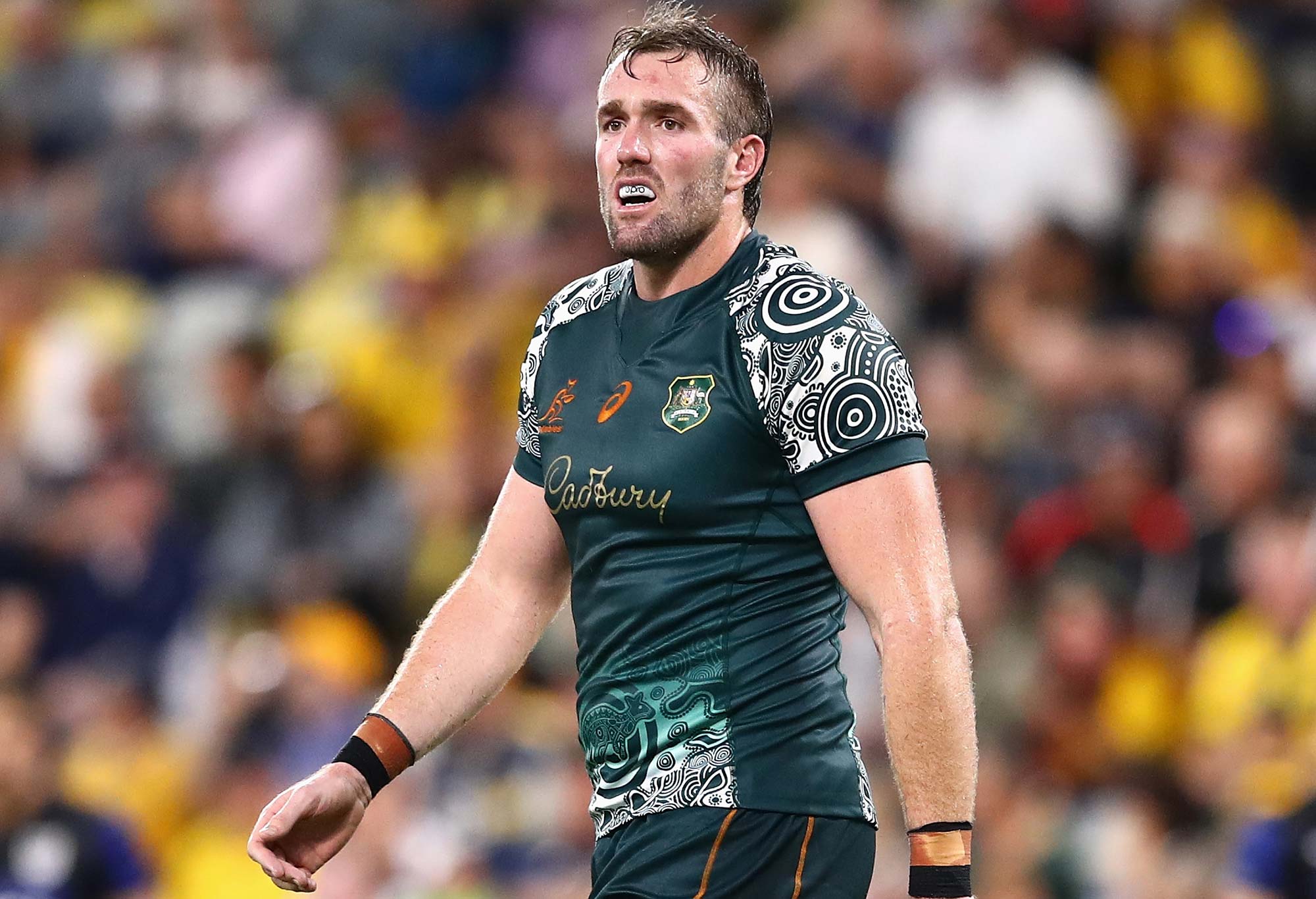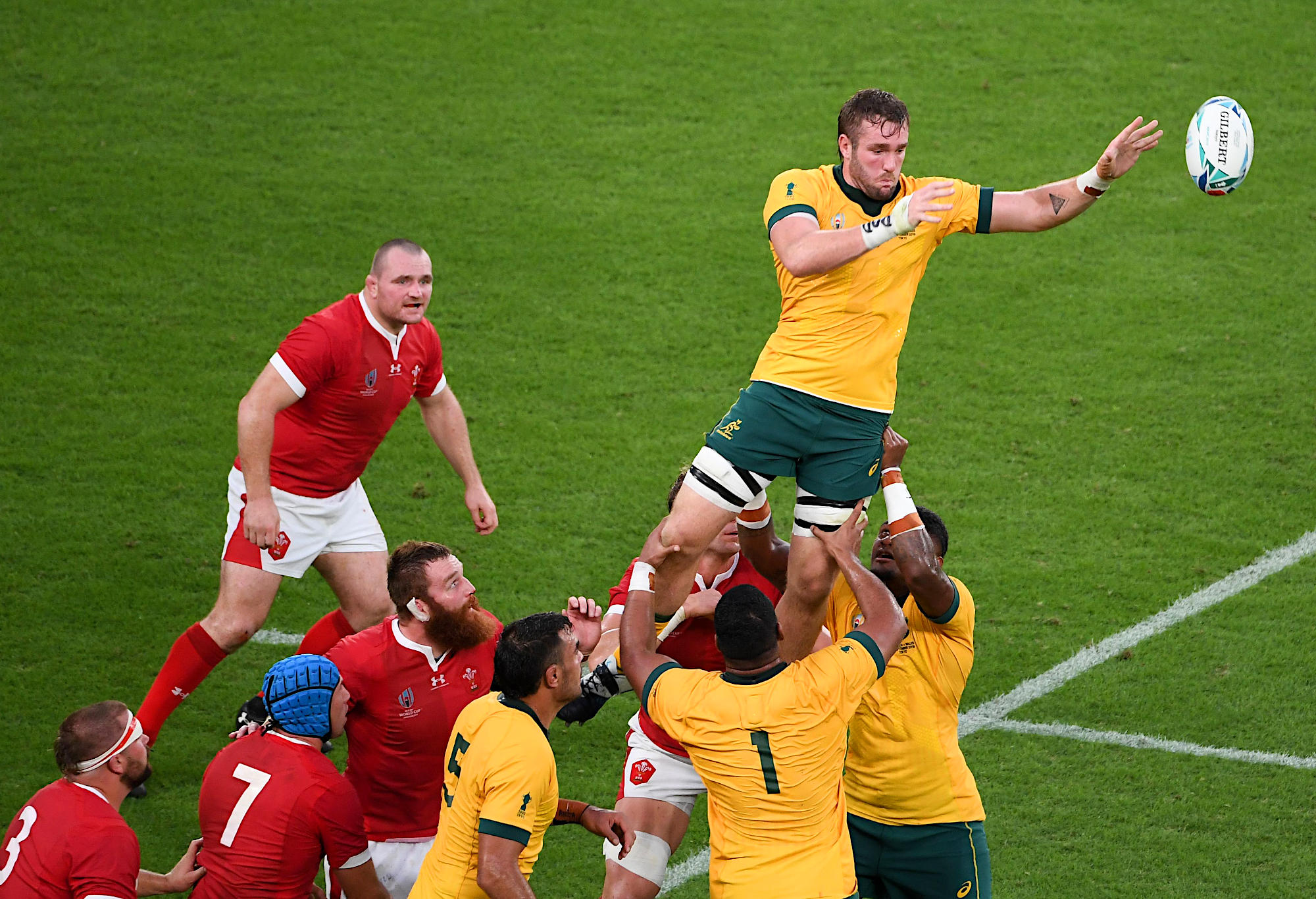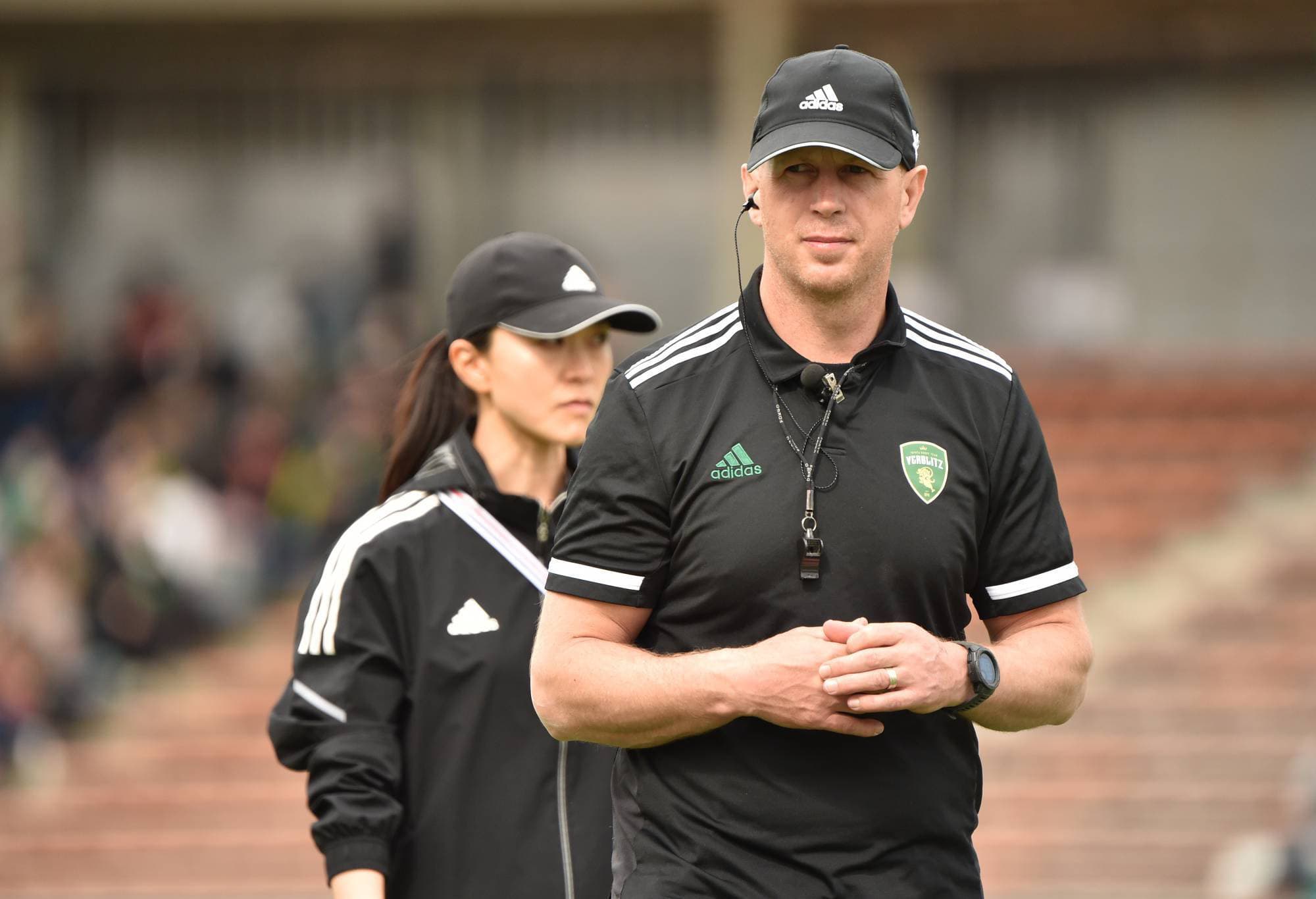Izack Rodda says he has never felt “lighter” but admits hearing the dreaded news that his season was over before the Test season had even begun was a “kick in the teeth”.
Rodda is the forgotten man of the Wallabies. A side, according to the experienced Test lock, that looked “very flat going into certain games” and paid the price, with inconsistency the hallmark of Dave Rennie’s team in 2022, where they claimed just five of 14 Tests.
In a wretched year for the Walking Wounded Wallabies, which left an element of the unknown hanging over Rennie’s side and his own credentials heading into a World Cup year, Rodda’s absence flew under the radar.
While other “big name” players like Quade Cooper and Samu Kerevi went down before the Wallabies’ season really got underway, and former captain Michael Hooper flew home to take time away from the game, Rodda’s absence barely made a drop in the ocean. Strange given he had started 31 of his 34 Tests.
Yet given the unheralded nature of Rodda’s game, as well as the fact he removed himself from consideration after moving to France midway through 2020 before returning to the Western Force in mid-2021, it is easy to see why the hard-working second-rower was somewhat forgotten.
Unlike the destructive Brodie Retallick or Lood de Jager, or even James Ryan, Rodda operates in the shadows, in the tight, slamming into rucks, and around the set-piece.
A foot injury at the backend of the Super Rugby season meant his year was cut short.
But it wasn’t until the international season had got underway that the full extent of Rodda’s injury came to light.
“My ankle started to get a bit sore during the games, but I thought it was just minor,” Rodda told The Roar.
“After having eight weeks off, further scans revealed it was a lot worse than we thought, which was a bit of a kick in the teeth.”

Izack Rodda says it took months to get over the disappointment of missing the entire Wallabies season. Photo: Chris Hyde/Getty Images
Rodda doesn’t hide behind his disappointment.
“It really sucked,” he said. “Thinking you’re only out for a certain amount of time, and that was coming around, and they were like it’s no good, it’s going to be the rest of the year, it was devastating.
“We all play to play the highest level. It did suck missing the full year of Test matches this close to a World Cup as well. It’s no fun being on the sidelines and watching the guys play because you want to be out there and doing your best. At the start it was a bit hard to take.
“Rugby’s tough mentally because it’s a rollercoaster – the highs are very high and the lows are very low. With the injury, you get pretty dark for a while because you’re all doing it to try and get to the end goal. To have it all taken away from an injury hits you real fast. It takes a while, a good two months, to get your head around it and stop having those negative thoughts about it.”
Rodda credits the support network around him as well as the Western Force psychologist, Jodii Maguire, for keeping him positive.
“You’re just a bit negative, a bit short tempered, I didn’t get full depressed but it could easily swing that way if you don’t talk about it and let it spiral,” he said.
After coming to grips that his season was over, Rodda says he feels better than he ever has before.
The bumps and bruises and the mental toll of training and playing weekly, riding the wave of high-performance sport, making way for a freer version of himself.
“I definitely feel a lot fresher and lighter, but it’s hindsight, you don’t know if it helps or it doesn’t because you don’t know both sides of it,” he said.
“Rugby’s such a mentally challenging and draining sport. You’re so invested in the goal; bad performances and team performances really weigh hard on the guys because you’re so invested, it’s all or nothing, and after a while you start to see people really struggle mentally and after a few years of playing you just get that mental drain because it takes so much out of you week-in, week-out to perform.”

Izack Rodda wins a lineout during the 2019 World Cup pool match against Wales. Photo: William West/AFP/Getty Images
The hallmark of Rodda’s game throughout his career has been consistency.
They are the same characteristics that defined his former coach Brad Thorn, who never left a stone unturned throughout his two-decade-long career at the top.
Rodda didn’t dance around the Wallabies’ issues, believing players had to be accountable for delivering on a weekly basis and the experienced lock said he was hopeful he could prove that in 2023.
“The biggest thing I probably picked up was just consistency,” he said.
“I don’t think the boys were consistent enough. That’s something I’d try to work on in my game is trying to give the same performance week-in, week out. There’s no point killing it one week and not showing up the next.
“Some of the guys looked very flat going into certain games and they were starting slow, and some guys looked like it was taking them 10-20-30 minutes to kick into gear. That’s something that you’ve got to manage throughout the week … because if you’re off in either your mental or physical side it’s going to weigh you down either way.”

Simon Cron has joined the Western Force from Toyota Verblitz. Photo: Kenta Harada/Getty Images
Rodda will return to full training along with Western Force teammates in the new year.
His fitness will be integral to their chances of mounting a push in 2023, with Simon Cron taking the reins as a Super Rugby head coach for the first time.
He says he has been “surprised” by Cron, who he says is “very smart, very switched on” and is “big on the mental side of things” and the “detail”.
“From a coaching point of view and an environment, it’s very hard to fault. I think it’s leaps and bounds better than last year,” he said.
“He holds people accountable. I guess from a technical point of view, something will happen at training and then we’ll have a review and he’ll fully break it down. I’ve noticed the little things, he picks up the finer details.”
Having played under Michael Cheika at the 2019 World Cup, Rodda says it’s essential not to run your race too early.
He will compete with a number of burgeoning young second-row talents, with Nick Frost one of the finds of the Test season.
Rennie, who caught up with Rodda ahead of the Tests in Perth and Adelaide, will also be weighing up whether to call up overseas-based pair Will Skelton and Rory Arnold.
It means competition in the second-row, with Brumbies duo Darcy Swain and Cadeyrn Neville regulars throughout the year, will be fierce.
For Rodda, however, he says form is everything.
“You can’t get so fixated on the World Cup because there’s a full Super Rugby season first and then there’s four or five Test matches before they select the squad, so there’s probably 17 or 18 games before they select the team,” he said.
“You can’t be so fixated on the end goal without doing what you need to throughout the Super Rugby season and into the Test season. Form is the biggest thing this year.”
As for Rodda, he just wants to be known as a “competitor”.
For a Wallabies team lacking consistency, that is an ingredient Rennie will likely dearly want in his side.































































































